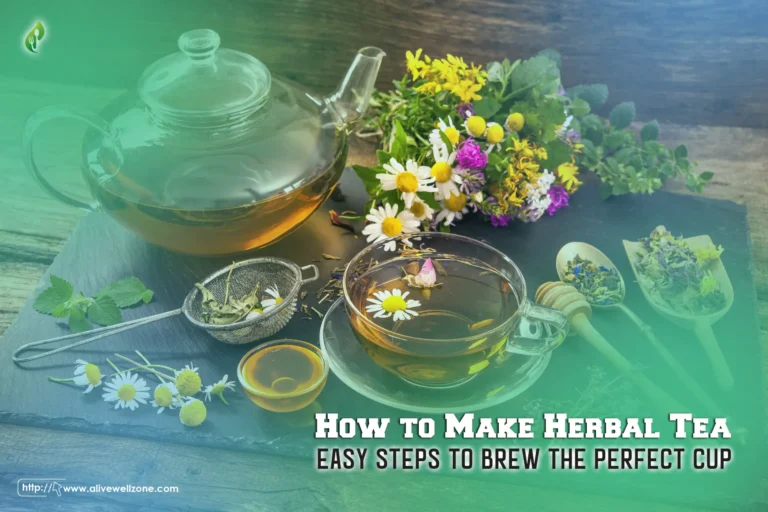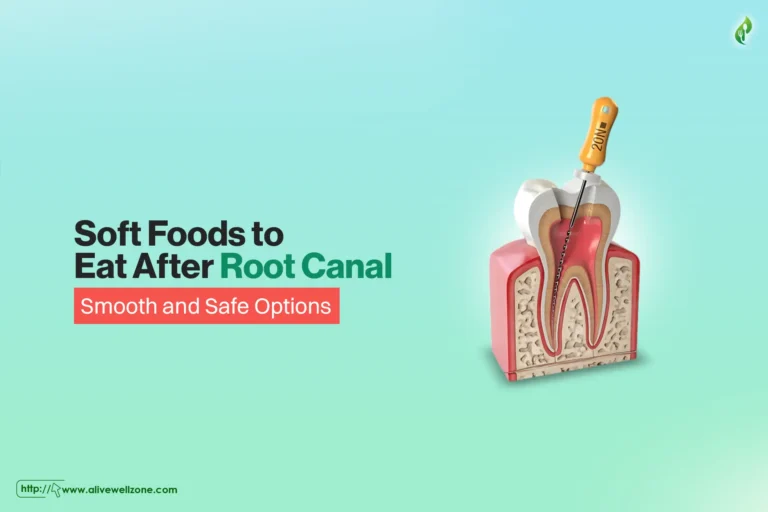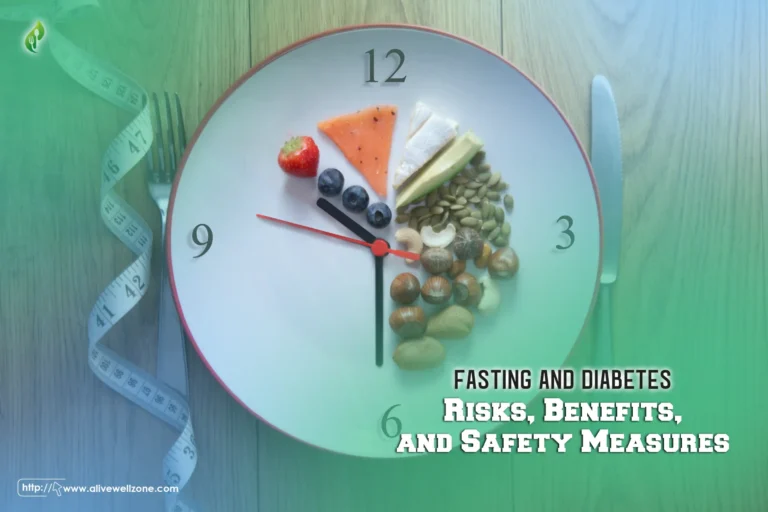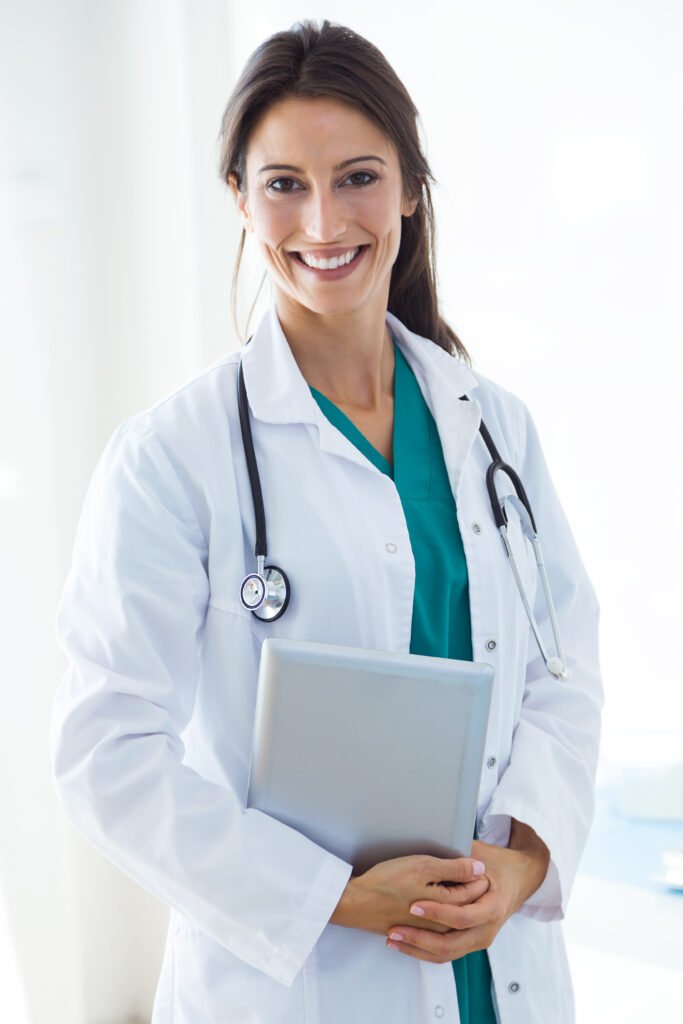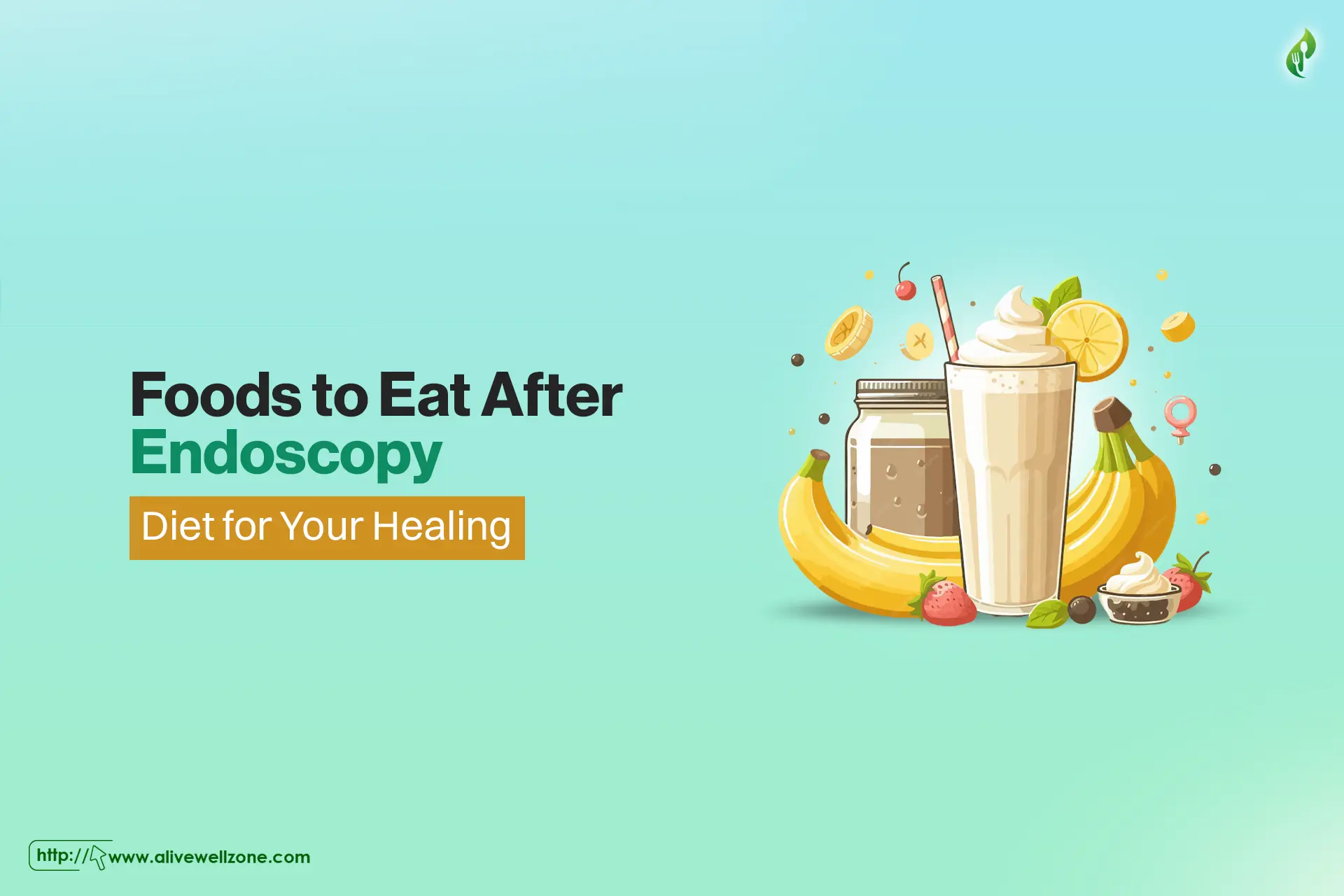
Last Updated on November 8, 2024 by Helena Akter
Just finished your endoscopy? Well, you might feel a little tender.
Or heartburn? Feel like throwing up or nausea? Or Them all!? Well, it’s time you should know about what foods to eat after endoscopy. And still get the nutrients you need to recover
You can eat clear liquids, bananas, applesauce, smoothies, white rice, and oatmeal after an endoscopy. Along with that, consult your doctor for personalized advice on resuming a normal diet gradually over 2 to 3 days.
In this guide, You’ll learn how to slowly reintroduce foods, what to avoid, and when to seek medical advice. With these tips, you’ll be on your way to a comfortable recovery and back to your normal diet in no time.
How Long Does an Endoscopy Take?
When you have an endoscopy, it usually takes between 30 minutes and two hours, depending on the specific procedure. You can usually go home on the same day, although some procedures might require an overnight stay.
During the procedure, doctors help you relax by using moderate sedation. In certain cases, general anesthesia may be necessary, which means you’ll have a breathing tube. Alternatively, some use local anesthesia combined with a sedative to numb a specific area and help you relax.
Once you’re asleep or relaxed, they’ll insert a scope to check the problem area. Meanwhile, doctors will adjust the scope to view your organs on a screen. If doctors see anything irregular, they’ll take tissue samples or provide the necessary treatment.
What Can You Eat After a Endoscopy?
After your endoscopy, listen to your body. Don’t drink or eat anything until swallowing feels comfortable. Then, for the next 1-2 days, stick to small, bland meals.
That said, here are some foods you can include to create healthy eating habits post-endoscopy.
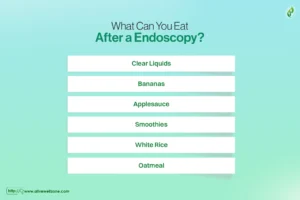
Clear Liquids
Start with clear liquids like water, broth, and unsweetened juice. They’re easy on your tummy and keep you hydrated. Plus, they won’t irritate your throat, which might be a little tender.
Also, ice chips can be a refreshing way to soothe your throat.
Bananas
After an endoscopy, bananas are great for two reasons. First, they’re soft and easy to swallow, perfect when your throat might be a bit sore. Second, they’re high in fiber, which helps your digestion get back on track. Plus, fresh bananas create a protective layer in your esophagus, which can be helpful against reflux.
Applesauce
It’s one of the soft foods to eat after endoscopy that’s easy on your stomach. Applesauce is also packed with pectin, a natural fiber that helps keep things moving smoothly.
Bonus: Applesauce is made of almost 88% of water, so it helps keep you hydrated during recovery.
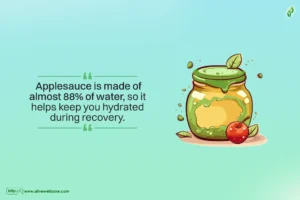
Smoothies
Consider smoothies after your endoscopy. They’re packed with nutrients and easy to digest since you can blend them to a smooth consistency. You can even customize them with fruits or yogurt (if your doctor approves) to add variety and flavor to your diet.
White Rice
White rice is a bland and easy-to-digest food, making it a good choice for settling an upset stomach. It can help things move smoothly through your system. However, if you ever feel like something is wrong, consult your doctor immediately.
Oatmeal
Oatmeal is another gentle option. It’s rich in soluble fiber, which helps with digestion and keeps you feeling full. Some studies suggest that oat bran or oats might even slow colon cancer cell proliferation. but always discuss this with your doctor.
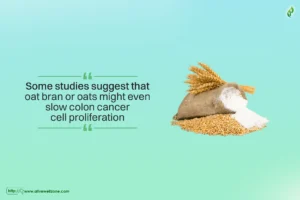
What Can I Eat Before an Endoscopy?
Getting ready for an upper endoscopy is important, but it doesn’t have to be complicated! Here’s a simple guide to what you can eat the week before your procedure —
7 Days Before Endoscopy
Just prior to your endoscopy, you should consider a low-residue diet. It means foods your stomach can digest easily without leaving minimum waste. Some of the well-cooked choices are —
- Think low-fat beef, chicken, fish, or eggs (poached or boiled).
- Opt for white rice, pasta, or noodles for easy digestion.
- Stick to peeled or cooked options that are gentle on your stomach.
- Milk, cheese, and yogurt are all okay in moderation.
Avoid these for now —
- These can leave too much residue in your intestines.
- Hold off on taking any supplements during this week.
Remember: This is a general guideline. Always check with your doctor for specific instructions before your endoscopy.
5 Days Before Endoscopy
As your endoscopy gets closer, your diet gets a little more specific. Here’s what to focus on in the next five days —
- Stick to lean meats and fish for the protein that’s gentle on your stomach.
- Broth is a great option to keep you hydrated.
- Light tea biscuits are easy to digest and won’t irritate your system.
- Tea and chamomile tea are calming and won’t leave any residue.
Note: If you take any medications, especially blood thinners, insulin, or aspirin, talk to your doctor. They might need to adjust the dosage or recommend stopping them temporarily before your procedure.
1 Day Before Endoscopy
The day before your endoscopy, things get simpler. Here’s what you need to know —
- Eat light meals in the morning and gradually switch to clear liquids by afternoon.
- Broth, clear Jello, sports drinks, and black coffee (without sugar or creamer) are your best friends.
- Drink plenty of fluids throughout the day to stay hydrated.
- Avoid fruits (fresh, canned, or dried), high-fiber cereals, lentils, brown rice or pasta, whole wheat bread, and red-colored foods or drinks.
- If you’re feeling hungry in the evening, stick to soft options like mashed potatoes or clear Jello.
Endoscopy Day
By now, you’ve likely completed the colon cleansing instructions provided by your doctor. Now, make sure you finish this process at least 4 hours before your scheduled arrival at the clinic.
Here’s what to keep in mind today —
- Avoid anything going in your mouth, including water, mint, or gum, for at least 5 hours before your appointment.
- Don’t eat or drink anything after midnight the night before your test.
Foods to Avoid After an Endoscopy
After your upper endoscopy with biopsy, giving your digestive system a break with a gentle diet can help you recover comfortably and prevent complications. Here’s what to skip for a few days —
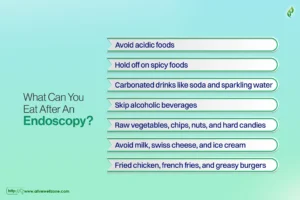
- Avoid acidic foods like citrus fruits, tomatoes, and vinegar. These can irritate your esophagus and stomach lining.
- Hold off on spicy foods like hot peppers, chili powder, and spicy sauces. They can cause heartburn and inflammation.
- Carbonated drinks like soda and sparkling water can lead to bloating and discomfort. Stick to plain water for now.
- Skip alcoholic beverages as they can irritate your stomach lining and slow healing.
- Raw vegetables, chips, nuts, and hard candies can be difficult to swallow and might scratch your throat. Opt for softer options.
- If you’re lactose intolerant, avoid milk, swiss cheese, and ice cream to prevent digestive issues.
- Fatty and fried foods like fried chicken, french fries, and greasy burgers are harder to digest and might cause discomfort.
Save them for after you’ve fully recovered!
How to Resume a Normal Diet Over 2 to 3 Days
After your endoscopy with biopsy, reintroduce your regular diet gradually to help your body heal. Here’s a simple plan to follow for the next 2-3 days —
Day 1: Take it Easy
Stick to clear liquids like water, clear juices, and broth. Your throat might be a little tender, so these gentle options will be easier to swallow and won’t irritate anything.
Day 2: Add Some Soft Foods
Keep the clear liquids going! Now, talking about soft foods to eat after endoscopy, you can also introduce some bland, semi-solid foods like yogurt, pudding, and mashed potatoes. These are easy to digest and won’t overwhelm your system.
Day 3: Gradually Introduce Solids
Now you can start adding more solid foods back into your diet. Think scrambled eggs, cooked oatmeal, and soft-cooked vegetables. Remember to chew thoroughly and take small bites to make things easier on your digestive system.
Observe your body and follow this plan. Avoid spicy, hard, or acidic foods that might irritate your stomach or throat. If you experience any discomfort, don’t hesitate to talk to your doctor or a registered dietitian for personalized advice.
When to Call Your Doctor After Endoscopy?
While most people recover from endoscopies without problems, watch out for the following. Here’s when to call your doctor —
- If your abdominal pain is severe or doesn’t go away after a while, call your doctor.
- Severe nausea or vomiting that won’t settle is a sign to reach out to your doctor.
- A fever after your endoscopy could indicate an infection. Play it safe and call your doctor.
- Rectal bleeding is a cause for concern. Contact your doctor right away.
- Dark stool color can be a sign of bleeding in your digestive system. Call your doctor to be safe.
- Difficulty urinating can be a complication. Don’t hesitate to call your doctor.
- If you’re struggling to breathe after your endoscopy, seek medical attention immediately.
Remember, it’s always better to be safe than sorry. If you experience any of these symptoms or have any concerns, don’t hesitate to call your doctor.
Final Words
Your digestive system needs specific foods to eat after endoscopy to heal smoothly. Remember, the key is to focus on easy-to-digest foods that won’t irritate your tummy.
So, start with clear liquids like water and broth to stay hydrated. Once you’re comfortable, introduce soft options like yogurt and mashed potatoes. For now, avoid spicy, acidic, and hard foods as they can be harsh on your recovery.
Don’t forget to drink plenty of fluids throughout the day to keep things moving along. Remember, everyone heals differently, so talk to your doctor about a customized plan to get back to your regular diet.
FAQs
Which juice is good after endoscopy?
Unsweetened juice is ideal after an endoscopy. These juices are gentle on the stomach, easy to digest, and help maintain hydration.
Is it normal to vomit after an endoscopy?
Yes, it’s normal to feel nauseous or vomiting after an endoscopy. The sedative and pain medications used during the procedure can cause gagging, drowsiness, bloating, and mild cramping.
Can I eat rice after endoscopy?
Yes, you can eat rice after an endoscopy. It’s easy to digest and can be eaten as soon as you feel comfortable swallowing. You can transition back to regular food without irritating your stomach with it.
Can you drink alcohol after a Endoscopy?
No, you should not drink alcohol after an endoscopy. Due to the sedation received, alcohol can increase drowsiness. For your recovery and safety, don’t drink alcohol or drive for at least 12 hours following surgery.

